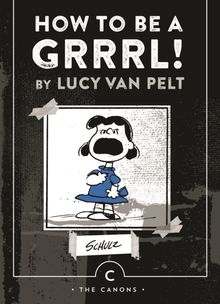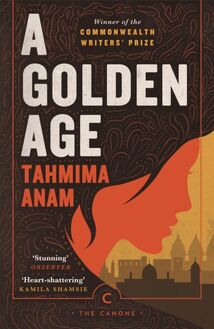Redeployment , livre ebook
118
pages
English
Ebooks
2014
Vous pourrez modifier la taille du texte de cet ouvrage
Obtenez un accès à la bibliothèque pour le consulter en ligne En savoir plus
Découvre YouScribe en t'inscrivant gratuitement
Découvre YouScribe en t'inscrivant gratuitement
118
pages
English
Ebooks
2014
Vous pourrez modifier la taille du texte de cet ouvrage
Obtenez un accès à la bibliothèque pour le consulter en ligne En savoir plus
Publié par
Date de parution
06 mars 2014
Nombre de lectures
1
EAN13
9780857864253
Langue
English
Publié par
Date de parution
06 mars 2014
Nombre de lectures
1
EAN13
9780857864253
Langue
English
Phil Klay is a veteran of the US Marine Corps. He served in Iraq during the surge and subsequently received an MFA from Hunter College. His work has featured in the New York Times , Tin House and Granta . He is co-host of the Manifesto! podcast and is the author of Redeployment and Missionaries . Redeployment was a New York Times bestseller and won the National Book Award for Fiction, the John Leonard Award and the Warwick Prize. @PhilKlay | philklay.com
Also by Phil Klay Missionaries
The Canons edition first published in 2020 by Canongate Books
First published in Great Britain in 2014 by Canongate Books Ltd, 14 High Street, Edinburgh EH1 1TE
First published in the United States in 2014 by Penguin Press, New York
This digital edition first published by Canongate Books in 2014
canongate.co.uk
Copyright 2014 Phil Klay
The right of Phil Klay to be identified as the author of this work has been asserted by him in accordance with the Copyright, Designs and Patents Act 1988
Redeployment first appeared in Granta , After Action Support in Tin House , and a portion of Ten Kilks South in Guernica.
British Library Cataloguing-in-Publication Data
A catalogue record for this book is available on request from the British Library
ISBN 978 1 78689 906 4
eISBN 978 0 85786 425 3
Designed by Marysarah Quinn
FOR MY MOTHER AND FATHER,
WHO HAD THREE SONS JOIN THE MILITARY IN A TIME OF WAR
CONTENTS
REDEPLOYMENT
FRAGO
AFTER ACTION REPORT
BODIES
OIF
MONEY AS A WEAPONS SYSTEM
IN VIETNAM THEY HAD WHORES
PRAYER IN THE FURNACE
PSYCHOLOGICAL OPERATIONS
WAR STORIES
UNLESS IT S A SUCKING CHEST WOUND
TEN KLIKS SOUTH
Acknowledgments
REDEPLOYMENT
We shot dogs. Not by accident. We did it on purpose, and we called it Operation Scooby. I m a dog person, so I thought about that a lot.
First time was instinct. I hear O Leary go, Jesus, and there s a skinny brown dog lapping up blood the same way he d lap up water from a bowl. It wasn t American blood, but still, there s that dog, lapping it up. And that s the last straw, I guess, and then it s open season on dogs.
At the time, you don t think about it. You re thinking about who s in that house, what s he armed with, how s he gonna kill you, your buddies. You re going block by block, fighting with rifles good to 550 meters, and you re killing people at five in a concrete box.
The thinking comes later, when they give you the time. See, it s not a straight shot back, from war to the Jacksonville mall. When our deployment was up, they put us on TQ, this logistics base out in the desert, let us decompress a bit. I m not sure what they meant by that. Decompress. We took it to mean jerk off a lot in the showers. Smoke a lot of cigarettes and play a lot of cards. And then they took us to Kuwait and put us on a commercial airliner to go home.
So there you are. You ve been in a no-shit war zone and then you re sitting in a plush chair, looking up at a little nozzle shooting air-conditioning, thinking, What the fuck? You ve got a rifle between your knees, and so does everyone else. Some Marines got M9 pistols, but they take away your bayonets because you aren t allowed to have knives on an airplane. Even though you ve showered, you all look grimy and lean. Everybody s hollow-eyed, and their cammies are beat to shit. And you sit there, and close your eyes, and think.
The problem is, your thoughts don t come out in any kind of straight order. You don t think, Oh, I did A, then B, then C, then D. You try to think about home, then you re in the torture house. You see the body parts in the locker and the retarded guy in the cage. He squawked like a chicken. His head was shrunk down to a coconut. It takes you a while to remember Doc saying they d shot mercury into his skull, and then it still doesn t make any sense.
You see the things you saw the times you nearly died. The broken television and the hajji corpse. Eicholtz covered in blood. The lieutenant on the radio.
You see the little girl, the photographs Curtis found in a desk. First had a beautiful Iraqi kid, maybe seven or eight years old, in bare feet and a pretty white dress like it s First Communion. Next she s in a red dress, high heels, heavy makeup. Next photo, same dress, but her face is smudged and she s holding a gun to her head.
I tried to think of other things, like my wife, Cheryl. She s got pale skin and fine dark hairs on her arms. She s ashamed of them, but they re soft. Delicate.
But thinking of Cheryl made me feel guilty, and I d think about Lance Corporal Hernandez, Corporal Smith, and Eicholtz. We were like brothers, Eicholtz and me. The two of us saved this Marine s life one time. A few weeks later, Eicholtz is climbing over a wall. Insurgent pops out a window, shoots him in the back when he s halfway over.
So I m thinking about that. And I m seeing the retard, and the girl, and the wall Eicholtz died on. But here s the thing. I m thinking a lot, and I mean a lot, about those fucking dogs.
And I m thinking about my dog. Vicar. About the shelter we d got him from, where Cheryl said we had to get an older dog because nobody takes older dogs. How we could never teach him anything. How he d throw up shit he shouldn t have eaten in the first place. How he d slink away all guilty, tail down and head low and back legs crouched. How his fur started turning gray two years after we got him, and he had so many white hairs on his face that it looked like a mustache.
So there it was. Vicar and Operation Scooby, all the way home.
Maybe, I don t know, you re prepared to kill people. You practice on man-shaped targets so you re ready. Of course, we got targets they call dog targets. Target shape Delta. But they don t look like fucking dogs.
And it s not easy to kill people, either. Out of boot camp, Marines act like they re gonna play Rambo, but it s fucking serious, it s professional. Usually. We found this one insurgent doing the death rattle, foaming and shaking, fucked up, you know? He s hit with a 7.62 in the chest and pelvic girdle; he ll be gone in a second, but the company XO walks up, pulls out his KA-BAR, and slits his throat. Says, It s good to kill a man with a knife. All the Marines look at each other like, What the fuck? Didn t expect that from the XO. That s some PFC bullshit.
On the flight, I thought about that, too.
It s so funny. You re sitting there with your rifle in your hands but no ammo in sight. And then you touch down in Ireland to refuel. And it s so foggy you can t see shit, but, you know, this is Ireland, there s got to be beer. And the plane s captain, a fucking civilian, reads off some message about how general orders stay in effect until you reach the States, and you re still considered on duty. So no alcohol.
Well, our CO jumped up and said, That makes about as much sense as a goddamn football bat. All right, Marines, you ve got three hours. I hear they serve Guinness. Oo-fucking-rah.
Corporal Weissert ordered five beers at once and had them laid out in front of him. He didn t even drink for a while, just sat there looking at em all, happy. O Leary said, Look at you, smiling like a faggot in a dick tree, which is a DI expression Curtis loves.
So Curtis laughs and says, What a horrible fucking tree, and we all start cracking up, happy just knowing we can get fucked up, let our guard down.
We got crazy quick. Most of us had lost about twenty pounds and it d been seven months since we d had a drop of alcohol. MacManigan, second award PFC, was rolling around the bar with his nuts hanging out of his cammies, telling Marines, Stop looking at my balls, faggot. Lance Corporal Slaughter was there all of a half hour before he puked in the bathroom, with Corporal Craig, the sober Mormon, helping him out, and Lance Corporal Greeley, the drunk Mormon, puking in the stall next to him. Even the Company Guns got wrecked.
It was good. We got back on the plane and passed the fuck out. Woke up in America.
Except when we touched down in Cherry Point, there was nobody there. It was zero dark and cold, and half of us were rocking the first hangover we d had in months, which at that point was a kind of shitty that felt pretty fucking good. And we got off the plane and there s a big empty landing strip, maybe a half dozen red patchers and a bunch of seven tons lined up. No families.
The Company Guns said that they were waiting for us at Lejeune. The sooner we get the gear loaded on the trucks, the sooner we see em.
Roger that. We set up working parties, tossed our rucks and seabags into the seven tons. Heavy work, and it got the blood flowing in the cold. Sweat a little of the alcohol out, too.
Then they pulled up a bunch of buses and we all got on, packed in, M16s sticking everywhere, muzzle awareness gone to shit, but it didn t matter.
Cherry Point to Lejeune s an hour. First bit s through trees. You don t see much in the dark. Not much when you get on 24, either. Stores that haven t opened yet. Neon lights off at the gas stations and bars. Looking out, I sort of knew where I was, but I didn t feel home. I figured I d be home when I kissed my wife and pet my dog.
We went in through Lejeune s side gate, which is about ten minutes away from our battalion area. Fifteen, I told myself, way this fucker is driving. When we got to McHugh, everybody got a little excited. And then the driver turned on A Street. Battalion area s on A, and I saw the barracks and I thought, There it is. And then they stopped about four hundred meters short. Right in front of the armory. I could ve jogged down to where the families were. I could see there was an area behind one of the barracks where they d set up lights. And there were cars parked everywhere. I could hear the crowd down the way. The families were there. But we all got in line, thinking about them just down the way. Me thinking about Cheryl and Vicar. And we waited.
When I got to the window and handed in my rifle, though, it broug














